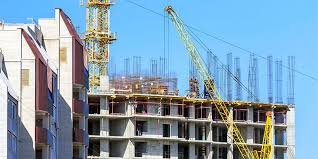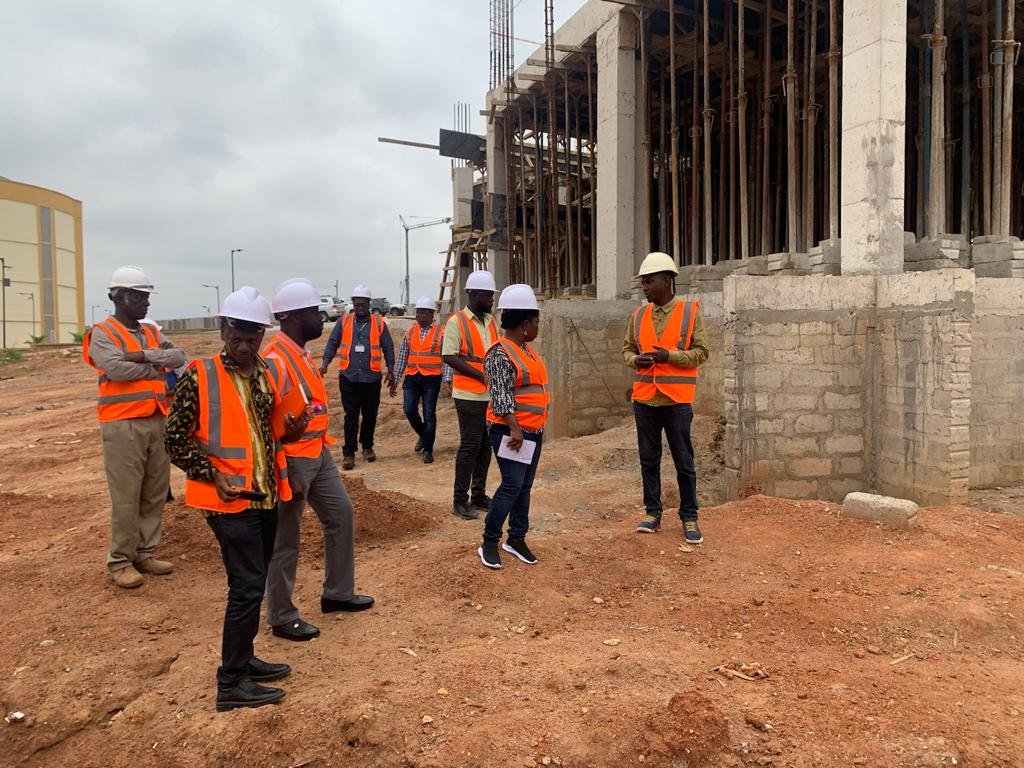By Daniel Kontie – CEO, Africa Continental Engineering and Construction Network Limited (ACECN)
…continued from previous post
Development Cost Implications for Developers
Developers relying on imported materials and equipment may benefit from the stronger Cedi, as the cost of imports in local currency terms decreases. This reduction can lead to lower construction costs and potentially more competitive pricing for new developments.
Market information gathered in our recent survey suggests a significant reduction in many of the inputs for property development. Fuel prices, which is an integral factor in transportation in the construction industry, has dropped considerably, with steel reinforcement bars and some others towing the same trajectory. Cement a major input has also dropped significantly et cetera.
The impact of these price reductions may be reflected in the pricing of these properties if the Cedi’s strength is sustained for a reasonable period. In fact, it is only under this circumstance that it will be justifiable to push developers to reduce prices, but until that, existing properties already listed for sale before the emergence of this trend, may still have to maintain their prices or better still adjust prices upward to compensate for the exchange rate depreciation differences.

Implications for Rental Property Owners/Lessees (Landlords)
Indeed, this is not a welcoming news for landlords pricing property rents in US Dollars. Landlords charging rent in US dollars will undoubtedly suffer significant exchange rate depreciation losses for the time being. Let me cite a practical example to demonstrate this as well, assume, the monthly rental rate of my property is USD$5,000, renewing my rent agreement with my tenant in January 2025 pending payment in May 2025, using the respective exchange rates of these months, January 2025 (USD$15/GHS1) and May 2025 (USD$10.22/GHS1).
I would be losing a whooping sum of about Ghs 23,900 Cedis per month essentially, due to the exchange rate depreciation difference on the assumption that I do not review the rent agreement to compensate for the exchange rate depreciation losses. With this analogy, landlords may have no option than to reconsider their pricing strategies as the Cedi’s appreciation leads to gains in favor of tenants and at the expense of landlords.
Also, in the commercial real estate sector, particularly in prime locations like Accra’s Airport City where dollar-denominated leases are common. The stronger Cedi could lead to renegotiations of lease terms, as tenants seek to capitalize on the favorable exchange rate to reduce rent expenditure.
Implications for Tenants
Property tenants whose rents are pegged in US dollar will now enjoy cool rebate as their rents pegged in USD may become relatively cheaper as they pay in Cedi terms on the assumption that landlords do not adjust prices to compensate for the exchange rate depreciation loses.
Let’s take for example using the same illustration in the foregoing subheading, if I renew my rent agreement as a tenant in January pending payment in May 2025. I would be saving a whooping sum of about Ghs 23,900 Cedis per month if my rental rate per month is USD$5,000.
Implications on Property Financing Institutions
The recent development will affect local banking intuitions and other financial institutions that have issued US Dollar denominated mortgage facilities to property buyers. The Cedi’s appreciation reduces the value of mortgage assets held by banks. This could lead to potential losses if not properly managed.
The impact is likely to take a huge toll on banks whose hedging, diversification and risk management strategies are tactically inferior. Consequentially, some financial institutions may have to review mortgage terms. This also has the potential to curtail US Dollar denominated mortgage loans as banks will be unwilling to grant loans considering the volatile nature of the exchange rate.
Reasons Developers cannot Reduce Prices of existing Properties
The strengthening of the Cedi will lead to huge exchange rate losses for developers who built their properties with imported materials at high exchange rates. Take for example, if I had my property completed and listed for sale in December 2024 for USD$100,000.

Selling this property between December 2024 and January 2025 would have given me a total revenue of Ghs 1.5million. On the other hand, selling the same property between May and June 2025 would yield a total revenue of about Ghs 1.02million. This will lead to a substantial exchange rate depreciation loss of about Ghs 478,000.
The consequential effect will be a huge capital wipe-out on these properties against developers if prices are not adjusted immediately to compensate for the losses. This is the reason why it will be extremely difficult for developers to respond immediately to this new price reduction proposal by the public.
Alternatively, developers may have to mitigate the impact of the exchange rate depreciation losses or better still, avoid the complex consequences of the currency volatility by choosing to adjust prices and may consider quoting their prices in local currency rather than the dollar, which is if the Cedi’s gains are sustained over an extended period.
In winding up on this point, it is important to let you know that, unlike other products and services, houses take months or years to build, meaning the construction cost goes through many cycles of material input price changes. Therefore, property pricing is not a linear function as we think. In fact, the Cedi’s strength will have to remain strong for at least 36 months from now for its impact to reflect in the form of reduced prices, that is if it works at all.
Strategic Recommendations
It is important to let you know that in situations like this, seeking professional advice is crucial in navigating the turbulence. We shall give a few strategic recommendations here, but remember, complete and detailed professional information shall be given upon an offer to do so by any interested person ready and willing to pay for this service. Now the recommendations are as follows:
Diversify Pricing Strategies: Developers and sellers should consider offering property prices in both cedis and dollars to cater to a broader market and mitigate exchange rate risks.
Enhance Market Transparency: Providing clear information on pricing, financing options, and market trends can build trust among buyers and investors, fostering a more resilient real estate market.
Realistic Pricing: This is the time stakeholders must pause and take an introspection on the property pricing and deal with the current speculative pricing regime. In this pursuit, the Lands Commission and the Real Estate Agency Council will be instrumental in leading this conversation. Properties in Ghana have always been overpriced.
Monitor Economic Indicators: Stakeholders should closely monitor macroeconomic indicators, including inflation rates, interest rates, and exchange rate movements, to make informed decisions and adjust strategies accordingly.
Engage with Policy Makers: Real estate professionals and associations should collaborate with government agencies to advocate for policies that promote market stability, such as incentives for affordable housing and regulations that encourage foreign investment in the affordable housing sector while protecting local interests.
Apart from the above, if this Cedi appreciation continues for the next 180 days from now, then, it is likely developers pricing in dollars will begin to adjust prices to compensate for the exchange rate losses or revert to Cedi pricing. Foreign buyers as well as the diaspora are likely to withdraw from market participation. Resident foreign developers may consider withdrawing from the Ghanaian market and may consider other markets with equal potential such as Nigeria, Rwanda or Ivory Coast etc. Banks are likely to put a moratorium on UD Dollar denominated borrowings.
Landlords and other commercial rental property owners listing their properties in UD Dollars may also consider adjusting prices or quote their prices in the local currency whilst some may consider locking up their spaces in anticipation for a market rebound. Local developers may have to take advantage of the concessionary input prices now to develop their properties in anticipation of a stronger Dollar comeback.

Do note that the UD Dollar is expected to bounce back, this is the reason, the recent ease in cost of living is likely to trigger higher demand and importers in response may import more goods to meet this demand. This may lead to a strong UD Dollar rebound.
Remember, I mentioned earlier that the Bank of Ghana’s policy rate tightening isn’t sustainable, neither is the gold reserves build up alone enough to sustain the Cedi’s strength. It is our hope that the government will adopt more supply side economic policies; until then, all other gains may be short-lived.
Conclusion
In conclusion, the appreciation of the Ghana Cedi presents both opportunities and challenges for the real estate sector. While it enhances affordability for local buyers and reduces import costs for developers, it may also lead to cautiousness among foreign investors and necessitate adjustments in rental pricing.
By adopting flexible strategies, enhancing transparency, and engaging with policy makers, stakeholders can navigate this dynamic environment and contribute to a robust and inclusive real estate market in Ghana.
But before we take leave, let me be quick to issue this disclaimer that views or opinions expressed in this article or any article by this writer are not to be relied on without obtaining legal or other professional advice when taking a step or entering into a legally binding agreement.
For real estate consultancy services, land banking investment strategies, property development, brokerage services, title registration, project funding consultancy services, feasibility studies etc. across Ghana and Africa, contact the Africa Continental Engineering & Construction Network Ltd. We have you covered 360℃.
The Author, Daniel Kontie is a young Ghanaian Entrepreneur and a Business Executive. He is the founder and CEO of the Africa Continental Engineering & Construction Network Ltd (ACECN), a leading Pan African Engineering, Construction and Real Estate Firm based in Ghana but a wide range of projects and network of Built Environment Professionals across Africa, Falcon 48 Developers and other affiliated companies. He developed ACEACRES, a Pan African Built Environment Summit aimed at Integrating the African Built Environment for Socio-economic Transformation of the Continent. Daniel received recognitions for his contributions to the Engineering, Construction and Real Estate Industry in Ghana and Africa. His work and achievements demonstrate his commitment to Innovation, Sustainability and the Integration of the African Built Environment. Daniel holds three (3) Degrees, BSc Economics, Catholic University, Ghana, Bachelor of Laws (LLB), Central University and MBA in International Business, Nexford University.
Tel: +233209032280 Email: d.kontie@acecnltd.com. Website: https://acecnltd.com/.




